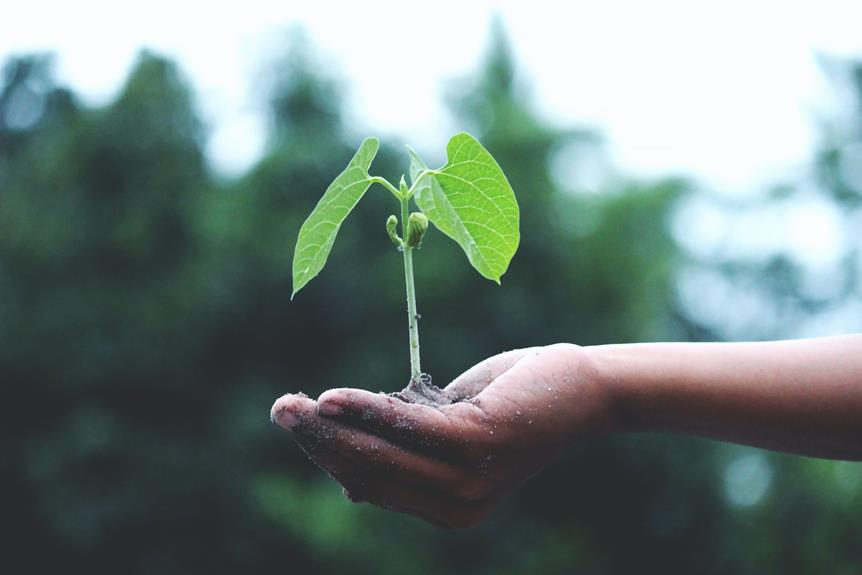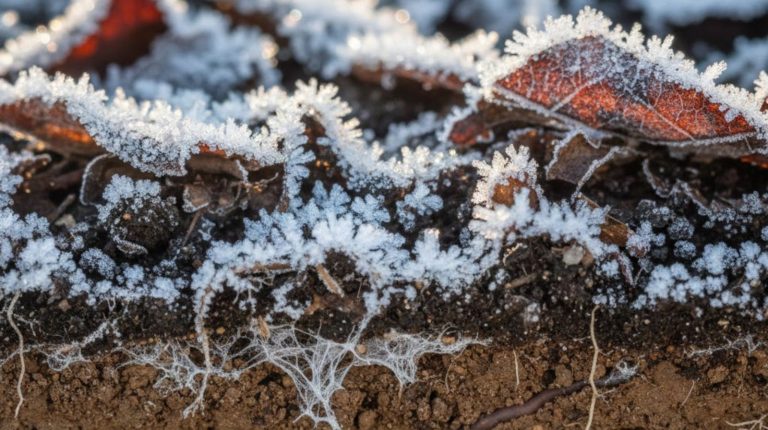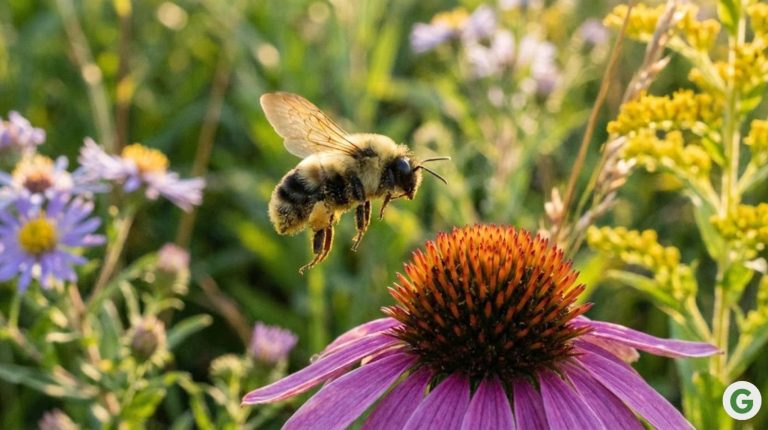In the days of yore, gardens were a testament to nature’s bounty, but today, you’re tasked with marrying the old with the new in a sustainable embrace. As a fellow earth steward, you know the importance of treading lightly on our planet.
You’re not just gardening; you’re nurturing a living mosaic where every plant and creature has a role. Start by selecting plants native to your region; they’re the community members that belong and thrive with minimal fuss.
When you compost, you’re not just reducing waste; you’re feeding the soil and fostering a cycle of life that’s been around for eons. Water conservation isn’t just practical; it’s a tribute to the preciousness of every drop.
Together, let’s cultivate not just gardens, but habitats that echo with the whispers of sustainability long cherished by those before us.
Embrace Composting Methods
By embracing composting methods, you’ll significantly cut down on your garden’s carbon footprint and enhance soil fertility. This simple practice not only diverts waste from landfills but also combats soil erosion.
When you add kitchen scraps, yard trimmings, and even paper to your compost, you create a rich amendment that feeds your plants and conserves water by improving the soil’s structure and moisture retention.
Moreover, your compost fosters beneficial insects and creates an environment less dependent on chemical inputs. By using compost, you’re essentially employing natural pesticides, thanks to the healthy ecosystem you’re nurturing underground.
You’re not just growing plants; you’re cultivating a vibrant, self-sustaining habitat that thrives with minimal intervention and respects the earth’s natural rhythms.
Conserve Water Resourcefully
Considering the scarcity of water, it’s crucial that you adopt efficient watering practices, such as drip irrigation, to maintain your garden sustainably. Drip irrigation ensures that plants receive a steady supply of water directly to their roots, using much less water than traditional methods.
Here are some water-wise strategies to embrace in your green haven:
- Install a rain barrel: Collect water during rainfall to use during drier periods.
- Choose plants that require less water: Opt for native or drought-resistant varieties.
- Water in the cool of the evening: Minimize evaporation by watering when the sun’s down.
- Repair leaks promptly: A single leak can waste a significant amount of water over time.
These steps won’t only help conserve water but also create a sense of community as we all work towards a sustainable future.
Opt for Organic Pesticides
While you’re adopting water-saving practices, don’t forget that switching to organic pesticides is another crucial step in protecting our planet’s delicate ecosystems.
By using options like neem oil, garlic extract, and eucalyptus oil, you’re choosing effective solutions without introducing harmful chemicals into the environment. These natural pesticides control pests and help prevent plant diseases while safeguarding pollinators such as butterflies and bees.
Organic pesticides align with the ethos of sustainable gardening and support a balanced ecosystem. Cultivating native plants reduces the need for pesticides, as they’re better adapted to local conditions. Instead, use companion planting and physical barriers to deter pests.
Embrace these green-conscious strategies, and you’ll foster a thriving garden that contributes to the well-being of the broader environment.
Cultivate Native Species
Embracing native species cultivation, you’ll not only conserve water but also support your local ecosystem’s balance and diversity.
By choosing to grow indigenous plant species, you’re making a conscious decision that helps retain natural habitats and encourages a wide variety of wildlife to thrive in your garden. Plus, you’re reducing your carbon footprint since these plants require fewer resources to maintain.
Here are four key reasons to cultivate native species:
- Less Water Usage: Native plants are adapted to local rainfall patterns.
- Chemical-Free Growth: They thrive without synthetic pesticides or fertilizers.
- Supports Local Wildlife: Native flora provides food and habitat for local fauna.
- Natural Pest Resistance: These plants have built-in defenses, promoting healthy plant growth.
Produce Your Own Vegetables
In addition to cultivating native species, you’ll bolster your garden’s sustainability by producing your own vegetables, cutting down on both emissions and the need for store-bought produce. Starting with easy-to-grow options like potatoes and lettuce, you can gradually expand your garden to include 33 different plant varieties.
Not only does this help ensure a diverse and resilient ecosystem, but it also allows you to enjoy less common produce that’s often unavailable or expensive in stores.
By producing your own vegetables, you’re tapping into the most local of water sources—rainfall and possibly even greywater—minimizing the strain on community supplies.
Embrace this green-conscious approach and you’ll find a sense of belonging in the sustainable living community, nourishing both your body and the planet.
Conclusion
Embrace these eco-friendly gardening practices, and you’ll not only cultivate a greener thumb but also forge a deeper bond with nature. By composting, conserving water, avoiding chemicals, and nurturing native plants, you’re not just theory-testing—you’re actively healing our planet.
Your garden becomes a microcosm of sustainability, a practical testament to the impactful change we can sow in our backyards. Go on, let your garden grow and let it show the way forward.




